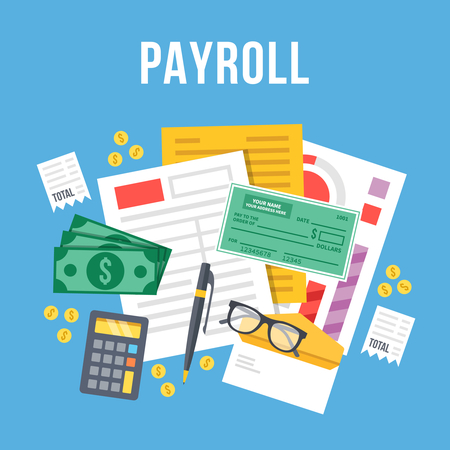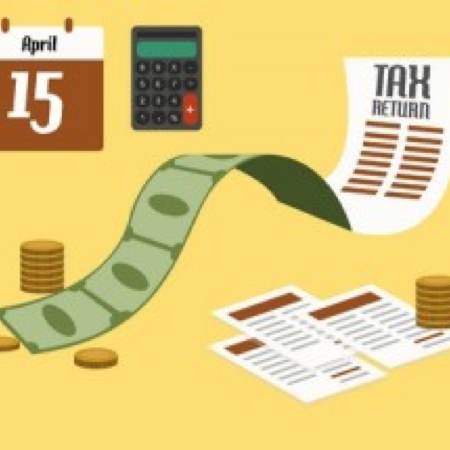Does HMRC object to putting family members on the payroll?

It’s said that more than half of small businesses in the UK are family-owned, mainly in the wholesale, real estate, construction and transport sectors.
They employ more than 12 million people and generate more than a quarter of UK GDP. In London, it is estimated that there are more than 800,000 family businesses.
Even if you are the single owner of your limited company or a sole proprietor, there may be situations where you need an extra pair of hands helping you with the running of your business. In most instances, you turn to your spouse or family members as you know you can trust them to help you out on short notice. As such, questions relating to ‘can you put family members on the payroll’ abound, which is why our payroll specialists at TaxAgility aim to explain the ins and outs of hiring family members.
If you're considering putting family members on the payroll, it's crucial to understand the rules, tax implications, and potential benefits.
Family ties are irrelevant
First of all, it must be explained that HMRC deems your family ties to be entirely irrelevant when it comes to who is placed on your payroll. You can definitely employ your spouse or any family members and put them on your payroll.
What HMRC is very much interested in is what your company gets out of the arrangement. In other words, the person who is being paid a wage appropriate to the job should actually be doing the job. There must be no special treatment paid to the family member through an inflated salary, reduced working hours, or anything that falls outside the ‘equal pay for equal value’ idea.
Unsure if you need to complete an SA100 Self Assessment tax return form? Checkout our full article that explains when you’ll likely need to complete an SA100.
Creating work for a family member
Many business owners incorrectly assume that they can only employ a family member within their company if they apply through the correct channels of communication for a job that is already available.
This isn’t the case at all. It’s entirely legal for you to create a job for your family member provided the work serves a necessary function in your company. For example, if you’ve been considering employing a receptionist for some time but haven’t got around to it, employing your spouse in this role would be perfectly acceptable. However, if you already have a receptionist who can currently handle their workload, to employ your spouse or any other family member as a second receptionist wouldn’t serve a necessary function in your company and could raise eyebrows at HMRC.
The same applies to employing your teenage son as your office cleaner, or your sister as an office administrator. So long as these extra bodies serve a necessary function, HMRC will have no issue with you employing them and placing them on your payroll, the same way you would any other employee in your company.
In general, the rules you must follow include:
- The work must be real and your family members must be paid commercially viable wages. You can’t get away by paying them £2 an hour to do bookkeeping nor £100 an hour to answer telephone calls.
- Payments must be made and records are kept.
- You (the employer) and them (the employees) must pay National Insurance contributions if they earn more than £166 a week.
- Obey child employment regulations if the family members involved are between 13-16-year-olds.
PAYE, NICs, and Payroll Requirements
When you employ family members, you must operate PAYE on their earnings, which includes deducting income tax and National Insurance contributions (NICs). However, there is an exception for family members who live in the family home and work for the family business – they are exempt from the national minimum wage. Those who don't live at home must be paid at least the national minimum wage.
- Lower Earnings Limit (LEL): £123 per week. Employees earning below this limit do not pay NI contributions but may still qualify for certain benefits, such as the state pension, through NI credits.
- Primary Threshold (PT): £242 per week. This is the point at which employees start to pay NI contributions. Earnings between £242 and £967 per week are subject to an 8% NI rate, while earnings above £967 are taxed at 2%.
- Secondary Threshold (ST) for Employers: £175 per week. Employers must pay NI contributions on earnings above this threshold at a rate of 13.8%
Don’t really understand your notice of coding letter or tax code? Here’s our article that explains all you need to know about your tax code.
Should you make your family members shareholders?
As tax on dividends is lower than on salary, you may consider making your spouse a shareholder and allowing them to receive dividend payments instead of salary.
Note that the Dividend Allowance - the tax-free dividend allowance has been reduced to £500 from 6 April 2024.
Here’s an example, assuming your spouse only receives £35,000 in dividend payments (no salary) in tax year 2023/24:
- The first £12,570 is tax-free (personal allowance)
- The first £500 of dividend is tax-free (director allowance)
- Dividends up to £37,500 are taxed at 8.75%
- This means the tax bill they are liable for is only £2,137.63
In comparison, if they receive £35,000 in salary in tax year 2023/24, then they are liable for £4,786.40 income tax (and £3,029.52 in National Insurance).
Staying Up-to-Date with Statutory Payments and Auto-Enrolment
As an employer, it's crucial to stay updated on changes to statutory payments. As of April 6, 2024, Statutory Sick Pay has increased to £116.75 per week, and from April, 2024, Statutory Maternity Pay, Paternity Pay, Shared Parental Pay, and Parental Bereavement Pay increased to £184.03 per week or 90% of your average weekly earnings, whichever is lower, for up to 39 weeks. Incorporate these updates into your payroll calculations to remain compliant.
Additionally, changes to the auto-enrolment earnings threshold are under review, which may affect family members earning below the current threshold. The review aims to include more employees, particularly from underpensioned groups, into workplace pension schemes.
Tax advantages
The salaries, commissions and bonuses you pay to your employees are tax-deductible expenses because they incur wholly and exclusively for the purposes of the business.
Here’s an example, assuming you hire your sister to do filing for £50 a week (£2,500 a year), you can offset this amount against your profit for income tax purposes. If you’ve done the work yourself, then you would be spending more time in the office while not enjoying the tax benefits.
Thinking about putting family members on the payroll?
If you’re a London-based business in need of further advice about putting family members on the payroll or other small business tax tips, contact TaxAgility’s small business accountants on 020 8108 0090, or get in touch with us via our contact page to arrange a complimentary no obligation meeting.
We’re London’s local accountants serving clients throughout the city with particular focus on Putney, Wimbledon, Fulham, Richmond, Hammersmith and Central London.
If you found this helpful, take a look at:
- Why outsource your payroll administration
- Payroll, pension and dynamic tax code changes April 2019
- HMRC Legal Powers
- How does HMRC expose tax evasion and avoidance?
This blog is a general summary. It should not replace professional advice tailored to your specific circumstance.
HMRC Tax Investigations: Everything you need to know
In an ever-changing tax landscape, small to mid-sized businesses in the UK face increasing scrutiny from HM Revenue and Customs (HMRC). With a rise in investigations and the adoption of advanced technologies like artificial intelligence, understanding the intricacies of HMRC’s approach is more crucial than ever.
This article aims to demystify the process of tax investigations, offering insights into the types of investigations, recent trends, and how businesses can best prepare for this daunting experience.
Brief overview of HMRC tax investigations
 HM Revenue and Customs (HMRC) is the UK’s tax authority responsible for collecting taxes, administering benefits, and enforcing compliance. Tax investigations by HMRC are formal procedures where the tax authority examines the financial records of individuals and businesses to ensure that the correct amount of tax is being paid. These investigations can range from simple checks to more complex and in-depth inquiries.
HM Revenue and Customs (HMRC) is the UK’s tax authority responsible for collecting taxes, administering benefits, and enforcing compliance. Tax investigations by HMRC are formal procedures where the tax authority examines the financial records of individuals and businesses to ensure that the correct amount of tax is being paid. These investigations can range from simple checks to more complex and in-depth inquiries.
Importance for small to mid-sized UK businesses
For small to mid-sized businesses in the UK, an HMRC tax investigation can be a daunting experience. The process can be time-consuming, stressful, and potentially costly if discrepancies are found. Given the recent rise in the number of investigations, particularly targeting smaller enterprises, it’s crucial for business owners to understand what an HMRC investigation entails and how to prepare for one.
Types of HMRC investigations and recent trends
Understanding the landscape of HMRC investigations is crucial for businesses of all sizes. While larger corporations may be more familiar with Code of Practice 8 (COP8) and Code of Practice 9 (COP9) investigations, small to mid-sized businesses often face different types of scrutiny.
Aspect and full enquiries
Small businesses are commonly subject to either “Aspect” or “Full” enquiries. Aspect enquiries are more focused, often zeroing in on specific elements of a tax return, such as particular expenses or tax reliefs claimed. Full enquiries, on the other hand, are comprehensive and may involve a complete review of the tax return and the business records supporting it.
Compliance checks
Another form of investigation that small businesses should be aware of is “compliance checks.” These are not as intensive as full enquiries but are designed to ensure that your tax affairs are in order. These checks can be random or triggered by specific risk factors identified by HMRC.
COP8 & COP9 statistics for 2022-2023
HMRC’s Fraud Investigation Service (FIS) has been actively using Codes of Practice 8 and 9 to investigate tax compliance and fraud. The data for the financial year 2022 to 2023 provides valuable insights into the scale and focus of these investigations.
COP8 Investigations
- Total on Hand: 1,121
- Opened in Year: 674
- Closed: 545
- Interest (£m): 7.9
- Penalties (£m): 6.4
- Total Yield (£m): 72.4
COP9 Investigations
- Total on Hand: 2,181
- Opened in Year: 417
- Closed: 661
- Interest (£m): 8.1
- Penalties (£m): 14.8
- Total Yield (£m): 89.2
Implications for small to mid-sized businesses
The data shows a significant number of COP8 and COP9 investigations are ongoing, with hundreds opened and closed within the last financial year. The yield collected from these closed cases amounts to £72.4 million for COP8 and £89.2 million for COP9, including interest and penalties. This underscores the importance for businesses to be vigilant in their tax affairs, as HMRC is actively using these codes to investigate and reclaim lost tax revenue.
While the focus of COP8 and COP9 investigations is often on larger corporations or high-net-worth individuals, the increase in staffing and reclaimed amounts suggests that HMRC is becoming more aggressive in its efforts across the board. Small businesses contribute an estimated £13.4 billion to the tax gap, making them a likely target for increased scrutiny.
By understanding the types of investigations and being aware of the latest trends, small to mid-sized businesses can better prepare for the possibility of HMRC scrutiny.
The rise in HMRC investigations
Over the past couple of years, HMRC has been ramping up its efforts to ensure tax compliance, especially among small to mid-sized businesses. Recent statistics indicate a significant uptick in the number of investigations. For instance, HMRC’s investigations into individuals and small businesses raised a staggering £5.7 billion in the fiscal year 2021/22, marking a 54% increase from the previous year. This isn’t just a random occurrence; it’s part of a broader trend that’s been gaining momentum.
What’s behind the surge?
The government has been increasingly focused on closing the tax gap—the difference between the amount of tax that should be paid and what is actually collected. Small businesses and freelancers have found themselves under the microscope more than ever, with a 21% rise in investigations targeting this demographic. It’s clear that HMRC is casting a wider net, and no one is immune.
What triggers an investigation?
Understanding what might trigger an investigation can help you steer clear of unwanted attention from HMRC. Common triggers include significant fluctuations in income, inconsistencies between different tax returns, and late or incomplete submissions.
Preventive measures: What to watch out for
If you’re a small business owner, there are specific areas you should pay close attention to in order to minimise the risk of an investigation. Accurate record-keeping is your first line of defence. Make sure all transactions are documented and that you’re declaring all forms of income. Employing the services of a reputable accounting firm can also go a long way in ensuring that your tax affairs are in order.
 The investigation process
The investigation process
When HMRC decides to investigate a business, it’s not a process to be taken lightly. The investigation can be initiated in various ways, such as random selection, specific triggers, or even a tip-off. Once you’re on HMRC’s radar, the process unfolds in several stages, starting with an initial letter of inquiry. This is followed by a request for specific financial documents, which could range from bank statements to invoices and payroll records.
The depth of the investigation can vary. Some are relatively straightforward, requiring only basic documentation to verify the tax returns. Others can be more invasive, involving interviews and a thorough examination of your business operations. It’s a process that can last anywhere from a few months to several years, depending on the complexity and the level of cooperation from the business being investigated.
The key takeaway here is that an HMRC investigation is a serious matter that requires immediate attention and thorough preparation. Ignoring or delaying your response to HMRC’s inquiries can lead to penalties and further complications.
Data utilised by HMRC
In today’s digital age, HMRC has access to an unprecedented amount of data to aid in their investigations. They utilise around 55 billion items of data from various sources, including banks, property records, and even social media. This data-driven approach allows them to create a comprehensive profile of taxpayers, making it increasingly difficult to hide any discrepancies.
What’s more, HMRC employs advanced data analytics and artificial intelligence to sift through this massive amount of information. These technologies enable them to spot inconsistencies or anomalies that might warrant a closer look. For instance, if your lifestyle appears to be more lavish than what your declared income would suggest, that could raise a red flag.
For businesses, this means that the bar for meticulous record-keeping has been raised even higher. It’s not just about keeping your books in order; it’s about ensuring that all your financial activities are consistent across the board. This level of scrutiny may seem overwhelming, but it underscores the importance of having a robust accounting system in place.
Penalties and consequences
If you find yourself at the receiving end of an HMRC investigation and discrepancies are discovered, the consequences can be severe. Financial penalties are the most immediate concern. These can range from a percentage of the unpaid tax for minor errors, all the way up to 100% of the tax owed for serious cases of fraud or evasion.
But the repercussions don’t stop at financial penalties. A prolonged investigation can take a toll on your business operations. The time and resources spent on gathering records, attending interviews, and seeking legal advice can be disruptive. In extreme cases, criminal charges could be brought against the business owners, leading to potential imprisonment.
It’s not just about the here and now, either. An HMRC investigation can have long-lasting effects on your business reputation. Clients and suppliers may become wary of engaging with a business that has been under investigation, which can have a domino effect on your future dealings and growth prospects.
The gravity of these potential outcomes makes it imperative for businesses to take HMRC investigations seriously. It’s not just a matter of paying what you owe; it’s about protecting the integrity and longevity of your business.
How to prepare and respond
Being the subject of an HMRC investigation can be a nerve-wracking experience, but preparation and a proactive approach can make all the difference. The first step is to ensure that your financial records are in impeccable order. This includes not just your tax returns, but also invoices, bank statements, payroll records, and any other financial documents that could be scrutinised.
 If you receive that dreaded letter from HMRC, don’t panic. The worst thing you can do is ignore it. Respond promptly and consult with an accounting firm experienced in handling tax investigations. They can guide you through the process, helping you understand what documents you’ll need to provide and what questions you might have to answer.
If you receive that dreaded letter from HMRC, don’t panic. The worst thing you can do is ignore it. Respond promptly and consult with an accounting firm experienced in handling tax investigations. They can guide you through the process, helping you understand what documents you’ll need to provide and what questions you might have to answer.
Legal advice is also invaluable. Tax law is complex, and the stakes are high. A legal advisor can help you navigate the intricacies of the law and ensure that you’re taking the right steps to resolve the investigation as smoothly as possible.
Lastly, communication is key. Keep an open line with HMRC throughout the investigation. This not only helps in resolving issues more quickly but also shows that you’re committed to compliance, which could work in your favour.
New initiatives by HMRC
HMRC is continually evolving its methods and strategies for tax collection and compliance. One of the latest initiatives is the increased use of data analytics and artificial intelligence to identify potential cases for investigation. This means that HMRC is not just relying on traditional triggers but is also using predictive algorithms to identify high-risk taxpayers.
Another noteworthy development is the focus on sectors that are traditionally cash-heavy, such as hospitality and construction. HMRC is increasing audits in these sectors, aiming to clamp down on undeclared income and tax evasion.
Additionally, HMRC has been collaborating more closely with international tax authorities. With the advent of the Common Reporting Standard (CRS), information sharing between countries has become more streamlined, making it harder for businesses to hide income or assets abroad.
These initiatives indicate a more proactive and technologically advanced approach by HMRC, which has implications for how businesses should prepare for potential investigations. It’s a clear sign that HMRC is upping its game, and businesses need to do the same to stay ahead of the curve.

HMRC’s use of AI in tax investigations
In an era where data is king, HMRC is not lagging behind. The tax authority has embraced advanced technologies, including artificial intelligence (AI), to enhance its capabilities in identifying tax evasion and avoidance. One of the most notable tools in HMRC’s arsenal is the ‘Connect’ AI system.
What is ‘Connect’?
The ‘Connect’ system is a sophisticated AI tool that holds an astonishing 55 billion items of taxpayer data. It uses this data to create comprehensive profiles of taxpayers, both individuals and businesses. The system pulls in data from a myriad of sources, including but not limited to, financial institutions, property transactions, and even social media.
How does it work?
‘Connect’ employs advanced data analytics to sift through the massive amount of information it holds. By using predictive algorithms and pattern recognition, it can identify inconsistencies or anomalies in tax returns and financial activities. This allows HMRC to flag potential cases for further investigation, making the process more efficient and targeted.
Implications for small businesses
While the ‘Connect’ system is incredibly powerful, it’s not infallible. It’s crucial for small to mid-sized businesses to maintain meticulous records to ensure that their financial activities are consistent across the board. Any discrepancies, even if unintentional, could trigger the AI’s algorithms, leading to an unwanted investigation.
By understanding how HMRC utilises AI in its investigative processes, businesses can better prepare themselves for the digital age of tax compliance. It’s a clear sign that the tax landscape is evolving, and businesses must adapt to stay ahead of the curve.
Final thoughts
Navigating the complexities of an HMRC tax investigation can be a daunting task, especially for small to mid-sized businesses. The rise in investigations, coupled with HMRC’s increasingly sophisticated methods, makes it more important than ever to be proactive in managing your tax affairs. From understanding what triggers an investigation to keeping meticulous records and seeking expert advice, preparation is your best defence.
But it’s not just about avoiding penalties or navigating an investigation smoothly. It’s about safeguarding the integrity and future of your business. With HMRC’s new initiatives and technological advancements, the landscape of tax compliance is changing rapidly. Staying informed and prepared is not just a good business practice; it’s a necessity in today’s ever-evolving regulatory environment.
So, if you haven’t already, now is the time to consult with an accounting firm like TaxAgility that specialises in tax investigations to ensure that your business is compliant and prepared for any scrutiny that may come your way. After all, it’s better to be safe than sorry.
UK tax on Irish rental income
An Irish citizen working in London is asked by HMRC to declare her rental income from Ireland
The Republic of Ireland is a short hop away from London and has a long-standing Common Travel Area (CTA) arrangement with the UK. Under the CTA, Irish citizens can live and work in the UK without a visa, residence permit or employment permit. This ease of movement may explain why many Irish citizens are working in London and contributing to the UK’s economy.
 While some Irish citizens may end up putting their roots down in the UK, others still prefer to retire in the Emerald Isle someday in the future. And considering the property market in Ireland is booming, it is not uncommon to see savvy investors getting a buy-to-let in Ireland now with the aim that they may move into the property later.
While some Irish citizens may end up putting their roots down in the UK, others still prefer to retire in the Emerald Isle someday in the future. And considering the property market in Ireland is booming, it is not uncommon to see savvy investors getting a buy-to-let in Ireland now with the aim that they may move into the property later.
Mary, our client, was doing just that. She purchased a lovely family home in a tree-lined residential street in Dublin a few years ago and now rents it out while she works in London. In the UK, she is on PAYE and in Ireland, she files the relevant Irish tax return each year. To Mary, her financial affairs are rather straight forward and there is no need to do additional reporting. Unfortunately, HMRC sees it very differently.
Declaring a rental in Ireland to HMRC
It is important to point out that every case is different and that you should always seek professional advice from a personal tax accountant first. In the case of Mary, the rental profits that she gets from renting out her Dublin property is subject to the Irish tax. However, Mary is also a tax resident in the UK and therefore, HMRC believes she should have declared her rental income from Ireland.
Declaring your overseas income may not result in you paying tax twice, but not declaring it may see you fined and penalised. Whether or not one has to pay tax twice on the same income source depends on the existence of a double-taxation agreement between the country of your foreign income and the country where you are a tax resident. In this case, Ireland has a double-taxation agreement with the UK and one should not be paying tax twice on the same income source.
Worldwide Disclosure Facility (WDF)
HMRC launched the Worldwide Disclosure Facility on 5 September 2016. The idea behind this is to encourage UK tax residents who have foreign sources of income to disclose them voluntarily. Considering that over 100 countries now share and exchange information under the Organisation for Economic Co-operation and Development’s Common Reporting Standard (CRS), the WDF should help to increase international tax transparency.
If you have foreign interests, chances are you need to make a disclosure through the WDF, and preferably you do it before HMRC sends you a letter. Not declaring may put you in an unfavourable position, as HMRC may think that you’re negligent or worse, you choose to conceal your foreign income deliberately.
If you aren’t sure if a disclosure is required, talk to our qualified personal tax accountants. You can choose to work with us and we can review your specific circumstance and make the best recommendations.
Examples of tax liabilities that you need to declare
- Income from letting residential property or land
- Capital Gains from assets that increased in value between the time you bought them and the time you sold or transferred them
- Income from running a business
- Income from freelance or commission-based work
- Income from accepting credit card or debit card payments
- Investment income
- Any other income that you should have paid tax on
Call TaxAgility on 020 8108 0090 about disclosing your foreign income on the Worldwide Disclosure Facility today.
Becoming your tax agent for Worldwide Disclosure
When Mary came to see our personal tax accountant, she was at a loss and naturally worried that she might be penalised financially. We worked with her to understand her circumstance and became her tax agent, representing her and helping her complete forms and calculate tax credits – in this particular case, since Mary has paid tax in Ireland, she was entitled to a credit which reduced her UK tax liabilities.
Upon seeing our work, Mary subsequently engaged us to handle her Self Assessment whereby we advised her how much tax to pay and when, if a tax credit is applicable, and prepare and submit her SA100 personal tax return to HMRC.
Personal tax accountants at TaxAgility
Tax issues can quickly become more complicated when you start to report foreign income to HMRC. Concerns such as one's domicile, the difference in tax year, or if double-taxation is applicable are valid and should be addressed professionally.
Thankfully, our personal tax experts are here to assist. Our top advice is don’t wait for HMRC to send you a letter. Instead, be proactive and let us understand if your tax affairs need to be disclosed through the Worldwide Disclosure Facility (or not).
Should a disclosure be needed, we can help to register you, prepare and submit your disclosure, work out how much tax, interest and penalties you may need to pay, and negotiate a payment arrangement if it is required. Working with you every step of the way, we can help ensure that you aren’t paying more than you should, and the disclosure matter will be completed quickly, efficiently and professionally.
Call us today on 020 8108 0090 and speak to a knowledgeable tax specialist in either our London Richmond-Upon-Thames office or our London Putney Office.
Case Study: When HMRC asks about your foreign income
The UK has Automatic Exchange of Information agreements with over 100 countries, so HMRC knows if you have declared your foreign income or not.
According to the UK Parliament, there were 6.2 million people (9% of the total population) living in the UK who had another nationality. Within our Central London, Putney and Richmond offices, we also have foreign-born colleagues who had previously worked in another country. With international migration now a common trend, it is not uncommon to see some people struggling with foreign tax issues, particularly when they thought they had reported in another country but received a letter from HMRC pertaining to the overseas income.
 One of our clients, Victor from Richmond-Upon-Thames, had previously lived and worked in Singapore for a decade, during which time he acquired some shares and a few assets. When Victor came to work in London, he didn’t pay much attention to his tax affairs as he is on PAYE. It also didn’t cross his mind that he had to report the small (and irregular) income he still receives and remains in his bank account there.
One of our clients, Victor from Richmond-Upon-Thames, had previously lived and worked in Singapore for a decade, during which time he acquired some shares and a few assets. When Victor came to work in London, he didn’t pay much attention to his tax affairs as he is on PAYE. It also didn’t cross his mind that he had to report the small (and irregular) income he still receives and remains in his bank account there.
But one day Victor received a letter from HMRC about his foreign earnings which he had not reported in the UK. Panicked, Victor came to our Richmond-Upon-Thames office and asked for our help. Our personal tax accountants analysed Victor’s position and advised on the correct remedy to rectify his tax filing requirements. Seeing how swiftly we acted and provided him with a satisfactory result, Victor has now engaged us to report his future foreign income through Self Assessment tax return service.
Worldwide Disclosure Facility (WDF)
If you have foreign interests, chances are you need to make a disclosure through the WDF, and preferably you do it before HMRC sends you a letter. If you aren’t sure if a disclosure is required, talk to our qualified personal tax accountants. We can review your specific circumstance and make the best recommendations.
The WDF users
HMRC wants anyone needing to disclose a UK tax liability that relates wholly or partly to an offshore issue to use the WDF. An offshore issue includes unpaid or omitted tax relating to:
- Income arising from a source in a territory outside the UK
- Assets situated or held in a territory outside the UK
- Activities carried on wholly or mainly in a territory outside the UK
- Anything having effect as if it were income, assets or activities of a kind described above
The WDF should also be used when you have funds connected to unpaid or omitted UK tax that you have transferred to a territory outside the UK or are owned in a territory outside the UK.
Examples of tax liabilities that you need to declare
- Income from letting residential property or land
- Capital Gains from assets that increased in value between the time you bought them and the time you sold or transferred them
- Income from running a business
- Income from freelance or commission-based work
- Income from accepting credit card or debit card payments
- Investment income
- Any other incomes that you should have paid tax on
Call TaxAgility on 020 8108 0090 about disclosing your foreign income on the Worldwide Disclosure Facility today.
The WDF process
To use the WDF process, you must first register and HMRC will issue you a unique disclosure reference number.
After the registration process, you have 90 days to:
- Gather the information you need to fill in your disclosure
- Calculate the final liabilities including tax, duty, interest and penalties
- Compete the online form
As the WDF process may not be straightforward, we do encourage those who have foreign assets to come to us for professional advice first or allow us to file on behalf of you.
Don’t underestimate the implications
HMRC wants to send a strong deterrent message to those who don’t disclose their foreign assets. Accordingly, if you fail to make an accurate disclosure or refuse to provide supporting documents allowing HMRC to check the accuracy, you may receive a higher penalty and have your details published on the gov.uk website. Also, HMRC may choose to launch a civil or criminal investigation against you. To save yourself from the headache and unwanted attention, it is best to speak to our qualified personal tax accounts first.
Personal tax accountants at TaxAgility
Tax issues are never straightforward and things can get complicated quickly if you have foreign assets which you may not know that you need to declare and pay tax on.
Fortunately, our personal tax accountants are here to assist. We will first seek to understand your tax affairs and identify what needs to be disclosed through the Worldwide Disclosure Facility (or not).
Should a disclosure is needed, we can help to register you, prepare and submit your disclosure, work out how much tax, interest and penalties you may need to pay, and negotiate a payment arrangement if it is needed. Working with you every step of the way, we can help to make sure that you aren’t paying more than you should, and the disclosure matter will be completed quickly, efficiently and professionally.
Call us today on 020 8108 0090 and speak to a knowledgeable tax specialist in either our London Richmond-Upon-Thames office or our London Putney Office.
HMRC Legal Powers
 Many people remain unaware that in an age where data protection and privacy are big issues, such rights do not always exist when it comes to tax affairs.
Many people remain unaware that in an age where data protection and privacy are big issues, such rights do not always exist when it comes to tax affairs.
In this area, HMRC has very wide powers to conduct surveillance and intrusively snoop on suspected tax dodgers.
Most would agree that tax evasion is a very serious issue, which should be investigated by HMRC if there’s a suspicion of fraud and criminal activity. But not everyone agrees when HMRC uses its power to collect more tax from innocent workers in order to minimise its tax gap, raising concerns on privacy infringement.
The power of HMRC comes from Schedule 36 of the Finance Act 2008, which allows HMRC to obtain information and documents from taxpayers and gives them the power to inspect businesses. According to HMRC, their criminal investigation powers allow them to:
- Apply for orders requiring information to be produced
- Apply for search warrants
- Make arrests
- Search suspects and premises following arrest
In July 2018, HMRC published a consultation proposing reforms to the existing legislation. Among other suggestions, they proposed to remove tribunal approval for third-party notices and create separate rules for third-party information requests.
While HMRC claims the reforms are meant to cut costs and improve efficiency, many businesses and taxpayers are concerned that this may remove some of the necessary checks and balances in place, which are particularly important when the requests relate to banking information.
How far can HMRC go in investigating?
While future changes are yet to be determined, at present, HMRC has the following powers to catch tax dodgers:
Their powers include:
- The ability to track a suspected tax evader’s web browsing.
- The ability to intercept and read private emails or eavesdrop on telephone calls, only permitted with a warrant.
- The potential to bug an office, house or car.
- The power to access credit reference information in order to compare alleged levels of income, information and documents given to credit companies and spending habits which may not match the information given in tax returns.
- The right to visit third parties.
- The ability to pass on any other relevant information regarding tax issues to other arms of the organisation.
What HMRC are not authorised to do
Be aware of your rights:
- HMRC cannot force entry or physically search by hand, they can only inspect by eye.
- They cannot make an unannounced visit without it being authorised by a senior officer.
- They cannot visit domestic premises.
- They cannot compel a taxpayer to answer questions.
- They must make it clear why a taxpayer is being investigated. They cannot investigate any other matter that they haven’t provided notice about.
While HMRC officers have clear restrictions under Schedule 36, it has also been disputed that these officers can take advantage if a taxpayer voluntarily waives their rights.
Tax investigations
If you’re being investigated by HMRC, contact our experienced team of accountants and tax advisors today. Our tax investigations services include:
- Liaising with the local tax office
- Compliance reviews of PAYE and NI
- Investigations of VAT issues
Get in touch today on 020 8108 0090 or contact us via our Online Form to arrange a complimentary, no obligation meeting.
This post was first published on 10 02 2013 and updated on 06 02 2019.
This blog is a general summary. It should not replace professional advice tailored to your specific circumstances.
Self-assessment: Are you excluded from online filing?
 Every year, HMRC publishes a list of exclusions for online filing. This list outlines the circumstances under which you will need to submit your self-assessment tax return by paper rather than online, as your online self-assessment could be rejected, or your tax liabilities could be calculated wrong. The problem is that the deadline for paper submissions is much earlier than it is for online submissions – 31st of October rather than 31st of January. Exclusions exist for those who cannot submit their self-assessment online; instead, the deadline for their paper submissions is extended.
Every year, HMRC publishes a list of exclusions for online filing. This list outlines the circumstances under which you will need to submit your self-assessment tax return by paper rather than online, as your online self-assessment could be rejected, or your tax liabilities could be calculated wrong. The problem is that the deadline for paper submissions is much earlier than it is for online submissions – 31st of October rather than 31st of January. Exclusions exist for those who cannot submit their self-assessment online; instead, the deadline for their paper submissions is extended.
Why do filing exclusions exist?
Frustratingly, HMRC’s algorithms cannot always correctly calculate the amount of tax due, and the software they use for tax returns will struggle with certain combinations of income sources and amounts. Therefore, HMRC needs these tax returns to be filed as paper returns, so they can manually check that the calculations are correct. This is the case even when you use third-party software to calculate your online self-assessment.
Note that most of the exclusions published for the 2016/17 tax year are no longer in place, and instead 12 new ones have been added – numbers 79-90. Unfortunately, this means that whether you were on the previous list of exclusions or not, you need to check it again. During 2016/17, additional problems were caused when HMRC changed the self-assessment software halfway through the year. It now seems like they will keep the current software, so no panic – you should be able to submit your self-assessment in good time.
How do I check if I’m affected?
If you submit your own self-assessment tax return and think you may be affected, you have to trawl through the 20-page document yourself. Unfortunately, there’s no way around it. On the other hand, if you have a tax accountant like TaxAgility submit your self-assessment, they will check if you are excluded, and they will always calculate your tax in a way that is beneficial for you; that way you won’t be liable to pay any fines, and you can maximise the income at your disposal.
What happens if I can’t submit my paper self-assessment return on time?
If you are excluded from online self-assessment, you need to submit a paper self-assessment by the 31st of January or be liable to pay a penalty fine. You also need to include a clear note with your documents referring to the list of exclusions. Your exclusion ID will be in the far-left column on the list. Customers who notify HMRC that they are affected by an exclusion will not be charged a fine, as long as everything is submitted before the deadline for online self-assessment.
Who can help me?
If issues like exclusions and tax self-assessment seem bewildering, it’s because they are. The list provided by HMRC is not an easy read unless you know what you are looking at. It’s important to get your personal tax return right; otherwise, you may pay a hefty fine or much more tax than you are supposed to.
Experienced London tax accountants at TaxAgility know exactly what to submit and when to submit it, which is why our customers trust us to handle their self-assessments. Even if you are experienced in dealing with your personal tax return, why not check if we could save you money?
For a free consultation, call TaxAgility on 020 8108 0090 or complete our simple online enquiry form.
What you need to know about changes to Inheritance Tax
 Inheritance Tax (IHT) may not be on your mind, but when you have considerable savings and property to pass on, it’s a good idea to add IHT to your tax planning checklist.
Inheritance Tax (IHT) may not be on your mind, but when you have considerable savings and property to pass on, it’s a good idea to add IHT to your tax planning checklist.
In the past two years, HMRC has generated more revenue from Inheritance Tax than ever before, £5.3bn to be exact. This is thanks to rising house prices and that the tax authority has been closing down various loopholes. It may come as good news though for homeowners that there has been a boost to the residence nil-rate band, and TaxAgility is here to explain what that exactly means.
What’s the nil-rate band?
The Inheritance Tax threshold, also known as the nil-rate band, is frozen at £325,000 per person until 2021. This means no tax needs to be paid on assets (excluding property) passed to your descendants up to this value. Above this threshold, your estate will incur a tax of 40%.
An additional IHT allowance is in place for people who own property, and this is called the residence nil-rate band. Set at £100,000 per person in the past tax year, the threshold has been raised to £125,000 this month and will continue to rise by £25,000 every year until 2020/2021, to take into account rising property values. This means that your descendants will only need to pay tax on the inherited property if it is worth more than £125,000.
Married couples and civil partnerships
Your IHT allowance gets added to your partner’s allowance if you die before them. This means married couples and civil partners can pass on assets worth £650,000 completely tax-free. The same concept of doubling applies to the residence nil-rate band, giving couples a considerable tax break.
Inheritance Tax accountants
You can expect further changes to Inheritance Tax throughout the year as the Office for Tax Simplification has been urged to review the complex rules around Inheritance Tax on gifts. TaxAgility is keeping a close eye on the changes, and we’re happy to discuss what the new Inheritance Tax threshold could mean for you, your property, and those you wish to inherit it.
No one wants to leave a hefty IHT bill as part of their legacy. To speak with a professional accountant to discuss ways you can maximise the value of your estate with Inheritance Tax planning, contact us today on 020 8108 0090 or get in touch with us via our contact page to arrange a complimentary, no obligation meeting.
Making Tax Digital pilot is now open to all self-employed UK taxpayers
 Join the government’s pilot and start sending regular income tax updates through HMRC’s Making Tax Digital system, if you’re self-employed.
Join the government’s pilot and start sending regular income tax updates through HMRC’s Making Tax Digital system, if you’re self-employed.
The tax authority’s Making Tax Digital (MTD) system will be rolled out in 2020, and last year a limited pilot program was launched to test the new digital system that will require businesses to report taxes digitally. The pilot has now been extended to all self-employed taxpayers in the UK. This means if you’re a sole trader with income from one business and your current accounting period ends after 5 April 2018, you can volunteer to file your income tax updates to HMRC digitally via the compliant software providers supporting the pilot. The pilot is also said to open up next month to unincorporated landlords.
What software can self-employed UK taxpayers use for the pilot?
HMRC’s list of software providers at the time of writing only contains two entries – IRIS and Rhino, but further accounting software companies are expected to appear on the list as the pilot progresses. Compliant software allows digital record keeping of income and expenses, sending quarterly updates to HMRC and viewing tax estimates from HMRC regarding the tax you owe. This is based on the updates provided by the software.
If you are using different software for your accounting, it may still be possible to pull client information directly from that software into IRIS and RHINO, but you will need to check with your software provider whether they have a partnership in place.
Why join the pilot?
MTD is coming into force eventually, and by signing up now you can not only help the government test this new tax service, but it’s also a chance to get comfortable with the new system yourself.
If your only source of income is through your jobs as a self-employed individual, by signing up to the pilot, you will not need to worry about filing a Self Assessment tax return at the end of the year. Instead, you’ll see the taxes owed in real time as the year progresses.
You can sign up for the pilot using your Government Gateway user ID and password, which is the same one you use for the Self Assessment online service.
Sending MTD updates using your accountant
As accountants for small business owners, we’ve been providing MTD transition support to small businesses in London since the rollout of the pilot scheme last year, and are happy to extend our services to the self-employed. Integrating IT systems can be challenging and time-consuming and without IT support, you may struggle with HMRC’s accounting software. We understand this at TaxAgility and also know that dealing with new and unfamiliar software adds extra work to your day. We work with XERO, a cloud-based accounting software, to prepare our clients of all sizes for a smooth transition.
Give us a call on 020 8108 0090 today to hear more about how our small business accountants at TaxAgility can help you.
HMRC Tax Investigations: Know Your Rights

As the owner of a small business, you need to be aware of your rights before HMRC comes knocking at your door to undertake a tax investigation. Knowing what to expect determines how you behave during the audit process, and being co-operative during an HMRC tax investigation will put you and your company in a positive light.
Timing of Visits
HMRC usually gives you seven days’ notice if they wish to inspect your premises in order to get an overall view of your business. They will tell you exactly what documents they want to see and approximately how long the investigation will take.
HMRC can also send officers to visit your premises unannounced. This isn’t likely to happen unless you’ve consistently refused to grant them access in the past, or if they’ve received a tip-off and believe contacting you in advance would give you time to cover your tracks.
Allowing HMRC Tax Investigation Officers Access
When HMRC turns up for a pre-arranged visit, you are legally required to let them in. It is within your rights to check the identity of the officers. To do so, call the number you were given in your correspondence arranging the visit.
If the visit is unannounced, you have the legal right to turn the officers away. Before doing so, however, ask the officers for their credentials and who sent them. If their unannounced visit was approved by the First-Tier Tribunal (FTT), the appeal tribunal that deals with tax discrepancies, refusing entry could land you with a £300 fine.
Investigating Your Premises
HMRC’s officers have the right to inspect all business assets, documents, stock, and capital equipment on the premises of your business. During this process, you (or a member of your staff) should accompany the officer. It’s important to note that the right to inspect your business premises is not the same as a police-issued search warrant. The officer may only look at what’s on display, they cannot go searching through drawers or filing cabinets.
If you’re a small business owner running your company from home, the investigating officer has the right to investigate any part of your home that’s used for your business (such as a spare room you use as an office), but they have no right to see any other part of your home. Consider closing the doors leading into other rooms of your house before their arrival.
Contact an Experienced Accountant
Receiving notice of an HMRC tax investigation can be a daunting prospect for SME owners, especially if it’s the first time you’ve encountered one. Speaking with our professional tax accountants to discuss the implications of your upcoming tax investigation can help put your mind at ease. We provide tax advice for clients throughout London and in local areas including Putney, Wimbledon, Fulham, Hammersmith and from our Central London office in Cavendish Square.
Contact us today on 020 8108 0090 or get in touch with us via our contact page to arrange a complimentary, no obligation meeting.
Aspects of this article were first published on 25/01/16 and updated on 31/01/18
HMRC’s New Salary Grab: The Facts
 First announced at March’s Budget 2014, the Government’s plans to grant HMRC the power to significantly increase the amount of money it can take from individuals’ pay packets for repayment of debts was picked up by The Daily Mail recently.
First announced at March’s Budget 2014, the Government’s plans to grant HMRC the power to significantly increase the amount of money it can take from individuals’ pay packets for repayment of debts was picked up by The Daily Mail recently.
Though it shouldn’t come as a shock that The Daily Mail would jump on a topic such as this with venom, these changes certainly shouldn’t be ignored if you’re in the higher tax bracket and have been repeatedly disregarding communications from HMRC.
Read more




